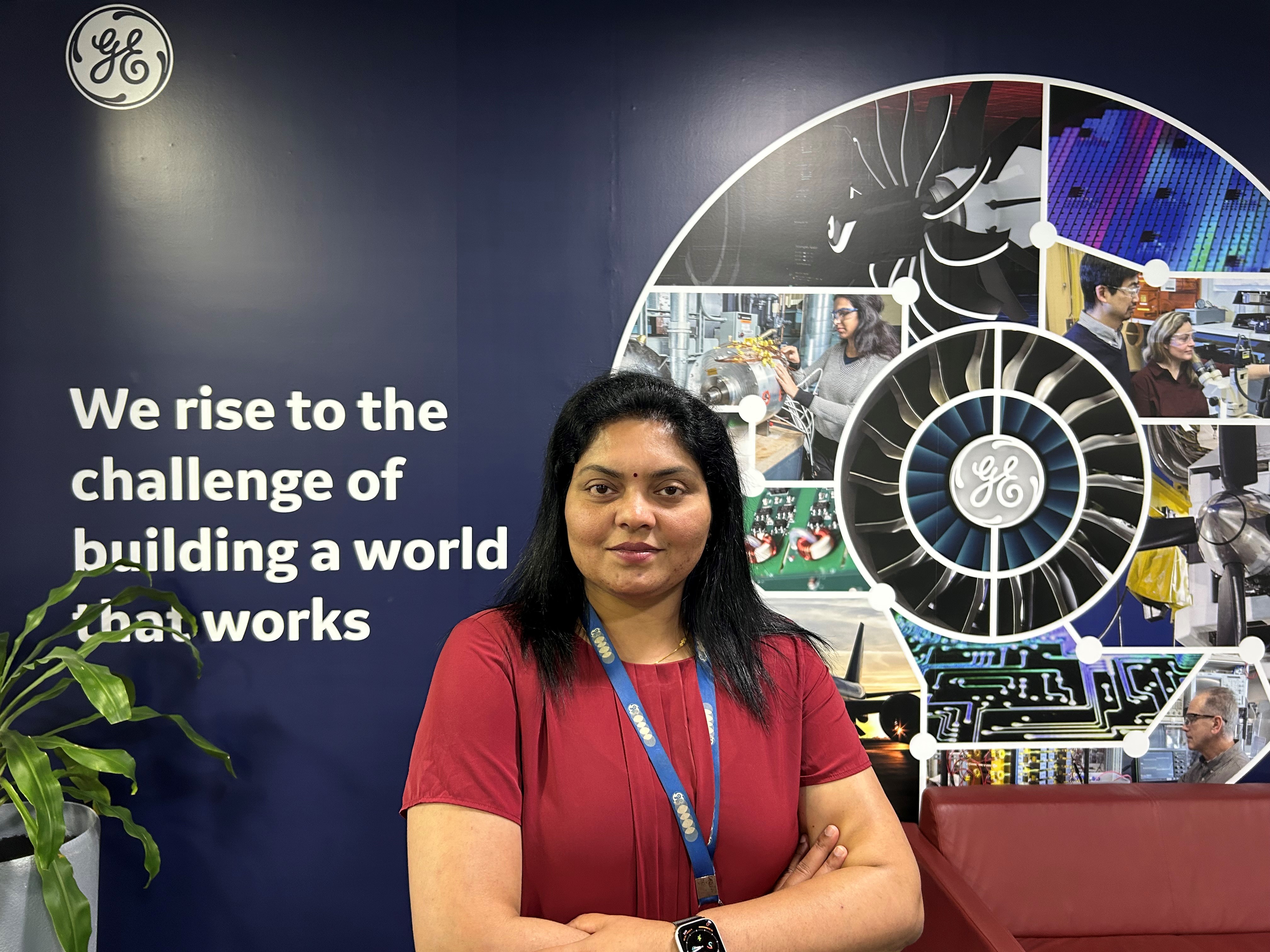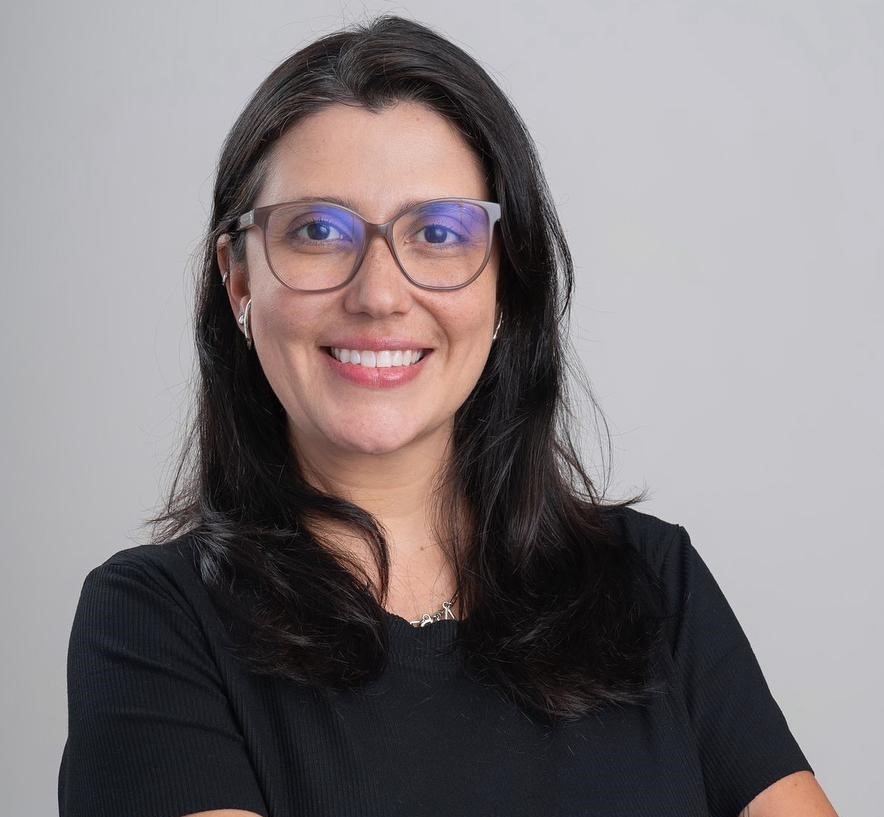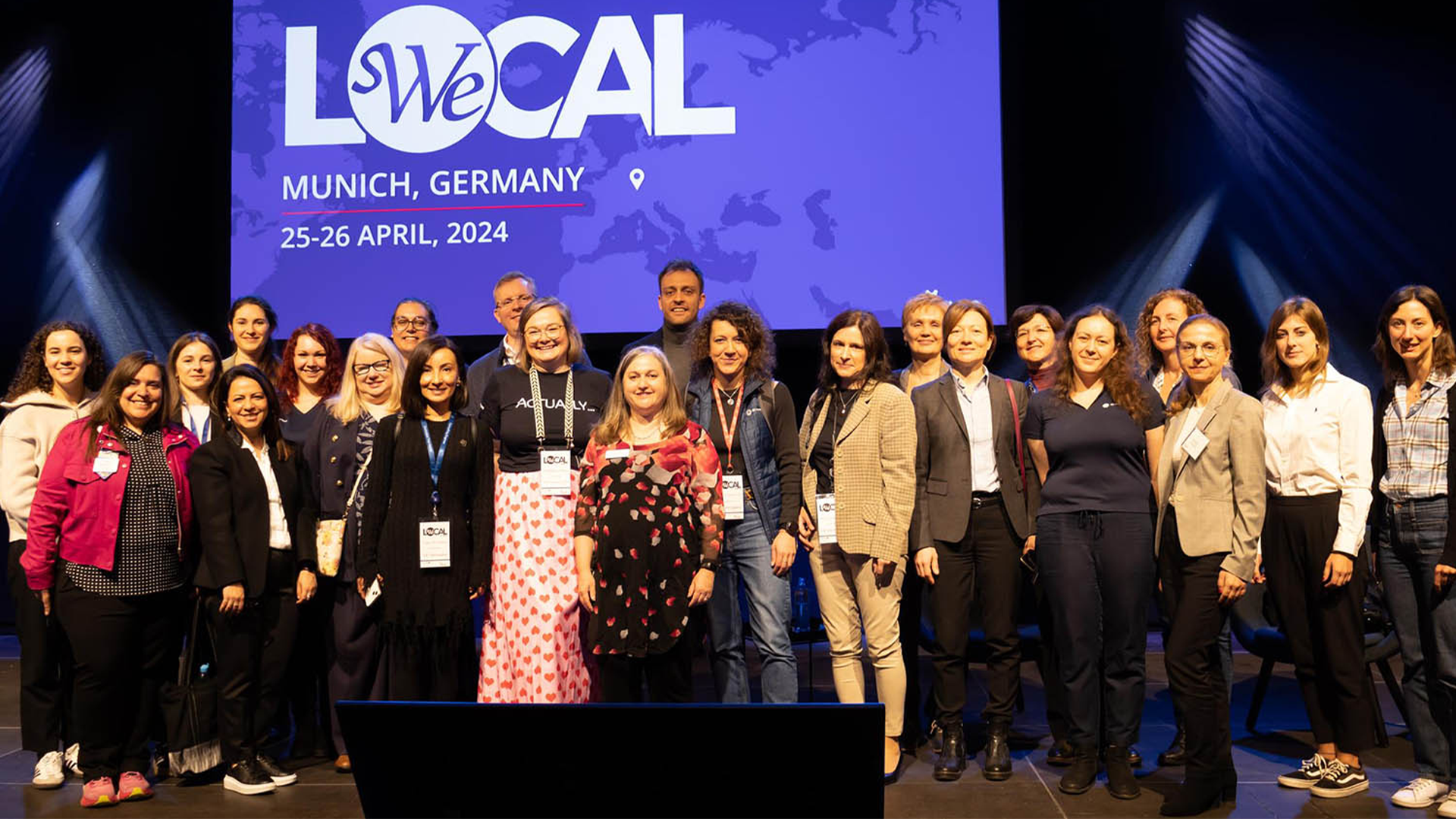Bringing More Women to the Skies: How GE Aerospace’s Women’s Network Helps Employees Around the World
April 26, 2024 | by Christine Gibson
On a summer morning in 2008, Suma MN walked through the doors of GE Aerospace’s John F. Welch Technology Centre in Bengaluru, India, to begin her career as an engineer. That same day, she also joined GE’s Women’s Network, an employee resource group that fosters the retention and promotion of women at the company.
“I grew up in a very small village and was the first resident, male or female, to get a Ph.D.,” she says. “I felt a huge responsibility to bring more women to the workforce.”
Halfway around the world, Adriana Azevedo Aymone had grown accustomed to being one of the few women in the lab. At engineering school in Brazil in the 1990s, “my university class was 54 men and six women,” she says. “When I got a job, I was not expecting anything different.” Now a customer program manager at GE Aerospace’s Celma engine overhaul facility in Petrópolis, Brazil, she turned to the Women’s Network for support as she balanced work and a young family. Her colleague Claudia Teixeira, the site’s international trade and logistics manager, is also used to sitting at the conference table with a group of men. She participates in the Women’s Network “because I know the importance of representation, of having spaces to talk.”
And more than 11,000 miles away in Shanghai, Wei Wu, GE Aerospace’s commercial operations regional general manager for China, is part of the second generation of women in China to be encouraged to join the workforce. “Even at an industrial company like GE Aerospace, which you would expect to be dominated by men, close to 40% of our employees are women,” Wei says. Still, she treasures the Women’s Network as “a safe environment where I can open up.”

The experiences of these four women reflect GE Aerospace in a microcosm. Separated by oceans, raised in different cultures and wielding diverse skills, they’re nevertheless working toward the same goal: advancing the future of flight. And, as members of the Women’s Network, they are also striving to make their workplaces more inclusive and forge an easier path for those who follow in their footsteps. Founded in 1997 to accelerate the advancement of women at GE, the Network helps thousands of women at its more than 150 hubs around the world. Through events, workshops, and mentoring, these groups offer critical support to women working in largely male-dominated fields.
“We’re trying to bring more women to the skies,” MN says.
Support for Working Moms
The Women’s Network is organized into a leadership team, regional steering committees, and local hubs. This layered structure provides high-level guidance while allowing hubs to adapt to local needs. Because, as evidenced by the struggles — and successes — of MN, Azevedo Aymone, Teixeira, and Wei, some experiences are unique to a time or place, and some are universal.
One challenge all four women have faced: balancing work and family. Around the world, working women contend with the household chores and childcare responsibilities that await them after the whistle blows. Watching her peers in China, Wei has observed how “most career women also take on all the heavy lifting at home, raising kids and caring for aging parents.”
That can be even more difficult in an inflexible workplace. Azevedo Aymone spent a few years early in her career as a financial analyst in the U.S., where she became pregnant with her second child. When she told her supervisor, “It was a disaster,” she says. “He was so mad. I remember going into the bathroom at the office to cry.” After her maternity leave, Azevedo Aymone found a job at GE Aerospace in Cincinnati, where she felt “happy and welcomed — like I was home again.”

As leader of the Women’s Network at the Global Research Centre in Bengaluru — one of the biggest hubs outside the U.S. — MN has made it her mission to help her colleagues overcome those obstacles. In collaboration with the staff in Bengaluru, MN developed several initiatives to retain women employees, including WOW Mom, which treats the transition to motherhood as a celebration, not a punishment. To build a web of support for expectant and new mothers, each participant is assigned a one-on-one mentor; in addition, they can lean on a peer group of other working moms at the company. Since the program was founded in 2017, more than 300 women have benefited from it.
“It's not about breaking the barriers,” MN says. “We’re finding a path around them so everybody can bring their whole self to work.”
Building a Pipeline of Women Leaders
While Teixeira’s generation of women aspire to be leaders, in Brazil “we don’t have many role models to look up to,” she says. “I try to connect with women whenever I can to understand how they got where they are.”

To share career wisdom, the Celma hub has focused on educational and professional development programs. And they are preparing the next generation of women leaders through GE Girls, which brings middle school girls to Celma to watch the shop floor team in action. (Bengaluru hosts a similar mentoring program, GE Girls, to show teenagers what is possible in STEM.)
Changing the Culture
The Shanghai hub has been GE Aerospace’s epicenter for celebrations in China, including the annual SuperShe festival, which publicizes the achievements of female role models from throughout the company. The members also partner with other GE Aerospace hubs and local women’s groups to share best practices for boosting diversity and inclusion. “We value being part of the global network,” Wei says. “We don’t have to do this on our own.”
In her 25 years at the company, Wei has seen the culture evolve, a change she credits to diversity efforts such as those spearheaded by the Women’s Network. “People are more willing to stand up for themselves and their colleagues,” she says.
She remembers her frustration years ago at being talked over by a roomful of men. “I would raise a point and it felt like nobody heard me,” she says. “Then later someone would suggest the same thing, and everybody would applaud.’”
More recently, she made a comment in another meeting that was ignored, only for a male co-worker to offer a similar idea a few minutes later. “My manager, who is a woman, spoke up: ‘Wei mentioned that five minutes ago,’” she says. “I felt like I was finally being recognized. Now I know I’m truly part of the team.”





